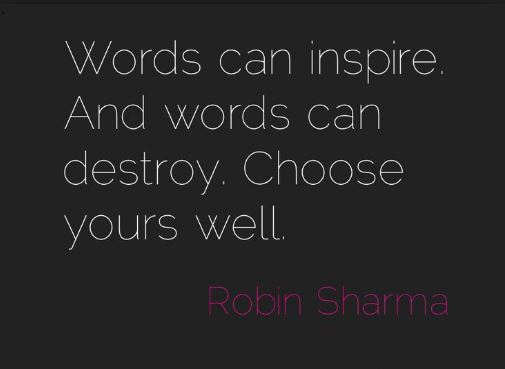

Gullible – easily persuaded to believe something credulous. Guilt – the fact of having committed a specified or implied offense or crime. Gruesome – causing repulsion or horror grisly. Grudge – a persistent feeling of ill will or resentment resulting from a past insult or injury. Grouchy – irritable and bad-tempered grumpy complaining. Grotesque – comically or repulsively ugly or distorted. Because of this ambiguity, double negatives are frequently employed when making back-handed compliments. Gross – (especially of wrongdoing) very obvious and unacceptable. Gripe – complain about something in a persistent, irritating way. Grievous – (of something bad) very severe or serious. To add fuel to the fire, I was also using words with negative connotations. Grief – intense sorrow, especially caused by someone’s death. What I was doing was permissive parenting, the exact opposite of positive parenting. Gravely – to a degree that gives cause for alarm. Graceless – lacking grace, elegance, or charm. Goading – provoke or annoy (someone) so as to stimulate an action or reaction. Gloomy – dark or poorly lit, especially so as to appear depressing or frightening. Gloating – dwelling on one’s own success or another’s misfortune with smugness or malignant pleasure. So let’s meet them: Positive Personality Adjectives 1. Let’s imagine each category as a different person. There are four main categories of positive personality adjectives. Let’s look at some positive words to describe people. Glitch – a sudden, usually temporary malfunction or fault of equipment. Check out 66 Negative Personality Adjectives here. Gimmick – a trick or device intended to attract attention, publicity, or trade. Gibberish – unintelligible or meaningless speech or writing nonsense. Ghetto – a part of a city, especially a slum area, occupied by a minority group or groups. Gasp – catch one’s breath with an open mouth, owing to pain or astonishment. Gangster – a member of a gang of violent criminals. Galling – causing annoyance or resentment annoying. Gaff – a stick with a hook or barbed spear, for landing large fish. Authors, freelance writers, copywriters, and content marketers use power words to spice up their content and compel audiences to take action. Posters who shared strong negative emotions decrease spending. They can make us feel scared, encouraged, aroused, angry, greedy, safe, or curious. Word-of-mouth recommendations are among the top influencers of purchase behavior. I hope you find the word(s) you’re looking for, good luck! 29+ Negative Words Starting With G Power words are persuasive, descriptive words that trigger a positive or negative emotional response. I’ve included some of the more interesting, unusual, and powerful adjectives that have negative implications.įinding the right words to describe something in the way you want can be very powerful. If you’re not opposed to sporting a little pessimism in your back pocket (you can’t appreciate life’s ups without its downs, after all!) we have you covered with our negative terms word list to help your practice expanding your vitriolic vocab wherever and whenever.Looking for negative words starting with G? You’ve landed on the right page, below I’ve put together a list of negative words that start the letter G.
Strong negative words how to#
When things go from bad to worse, learn how to distinguish between “worse” and “worst.” Negative words that start with X When negativity reigns and circumstances don’t go as planned, learn some creative ways to describe disaster situations. A helping verb used with the negative word not. There is bad stuff out there, but having the right language for it can make things just a little bit better. The following examples show several ways to make a sentence negative in the present tense.

From acrid to zestless, we rounded up some of the best terms for expressing anything that is bringing us down.
Strong negative words full#
While that can be tough, at least the English language is full of colorful vocabulary we can use to describe negatives. Bad-tempered short-tempered or quick to anger. Probably the most commonly used adjective to describe someone who has too little fat is thin. Abrasive lacking any softness, tenderness, or tact in their expression. It would be great if life was always sunshine and rainbows, but unfortunately, sometimes things are less than ideal. Let’s take a look at some of the more commonly used words for body shapes.


 0 kommentar(er)
0 kommentar(er)
